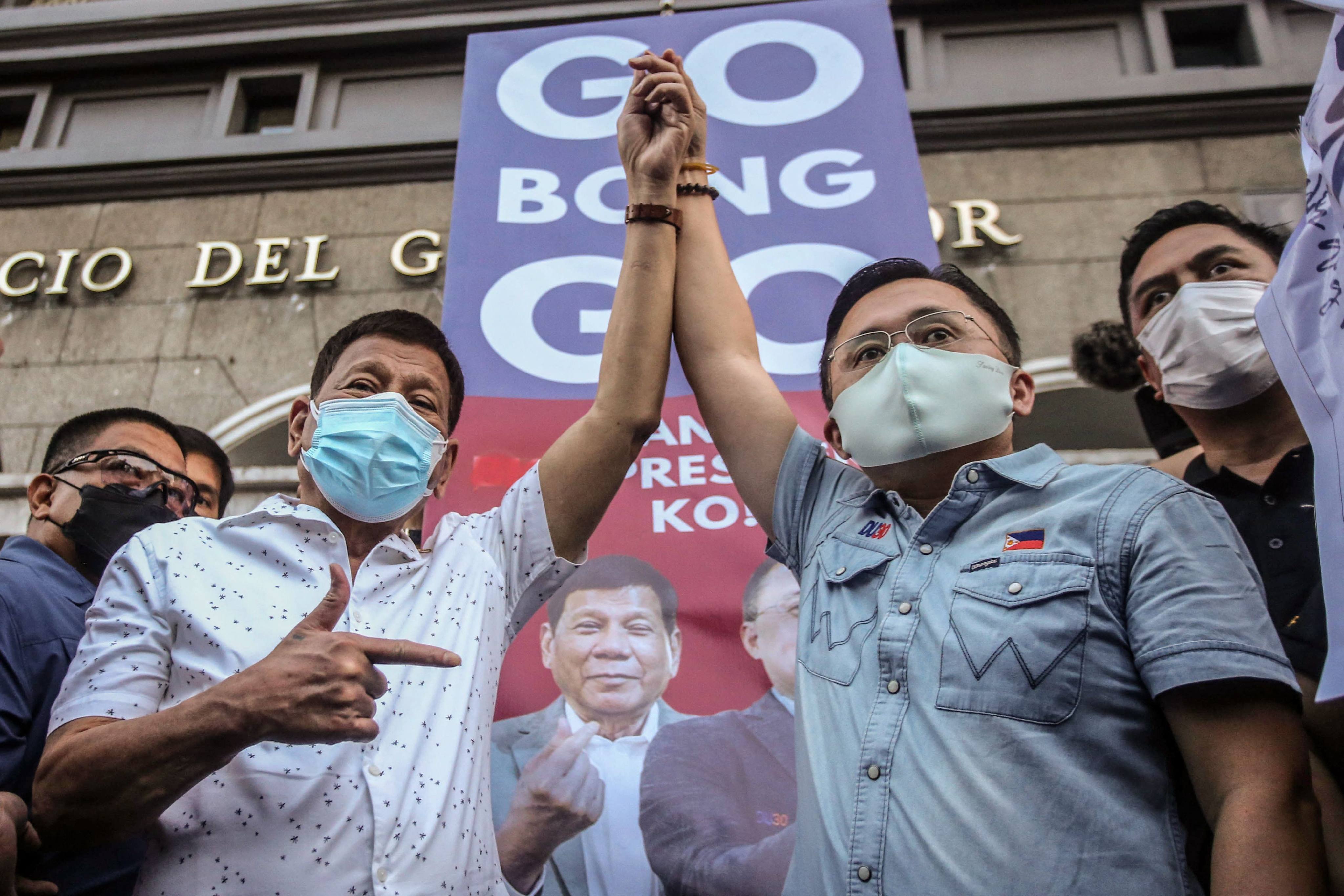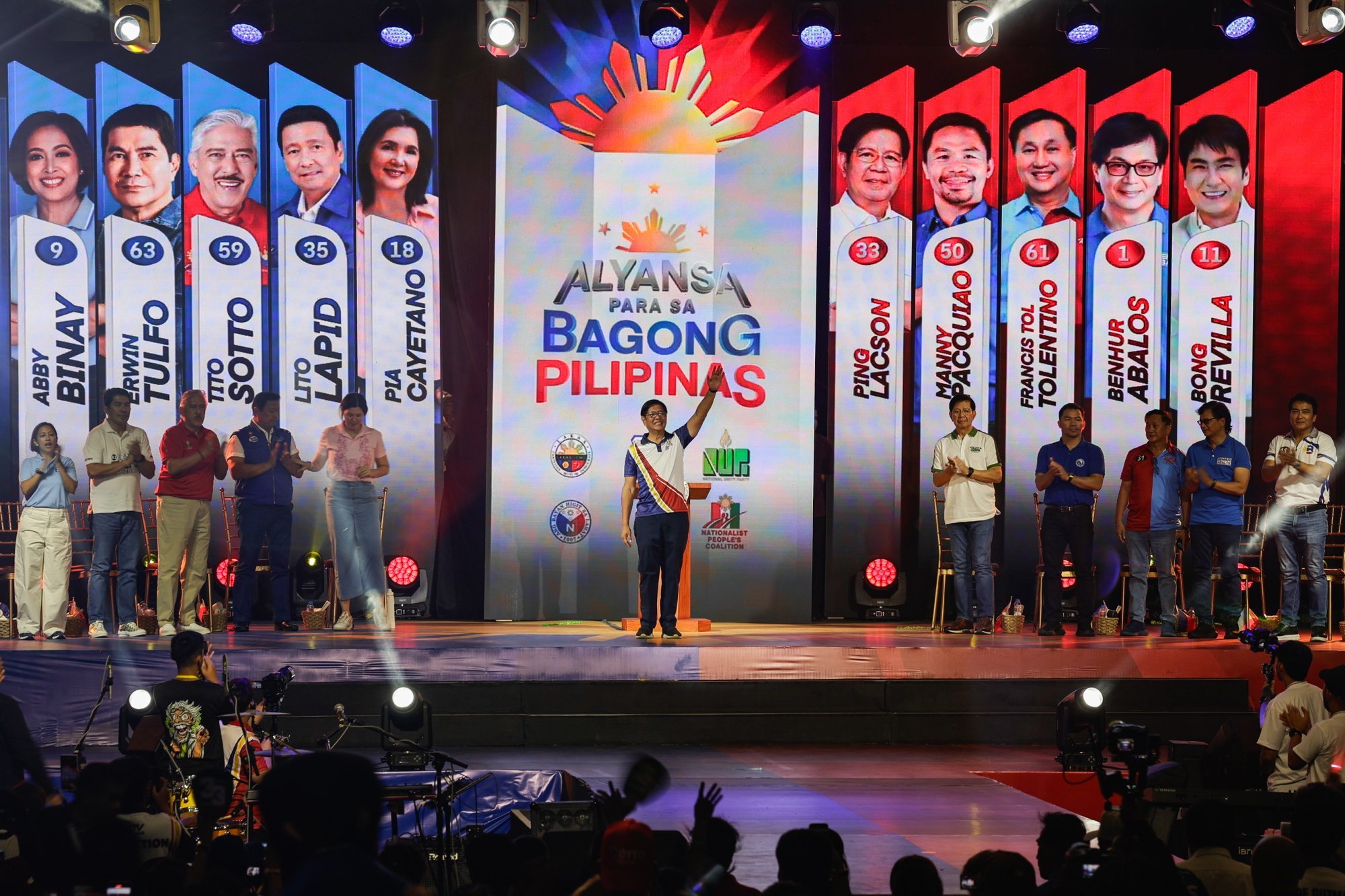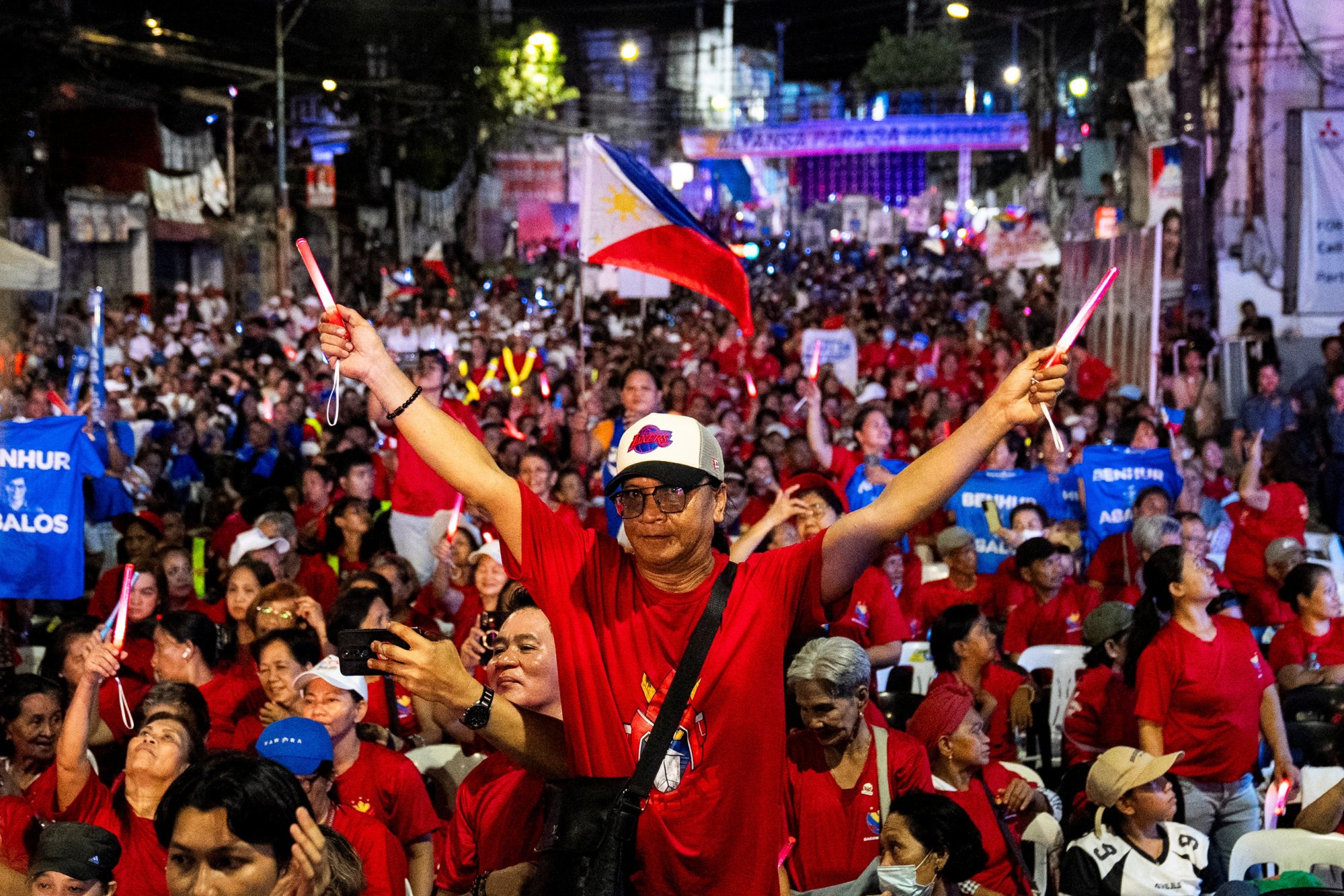Philippine election: Duterte’s ‘Mr Malasakit’ on track for Senate win on gratitude vote
Christopher Go is synonymous with one-stop healthcare centres that provide aid to the poor, garnering him ‘agnostic’ voter preference

A former chief aide of Philippine ex-president Rodrigo Duterte looks set to top the polls on Monday, with observers saying his victory would stem more from gratitude over a clever health legislation he wrote instead of a protest vote against the incumbent administration.
Senator Christopher “Bong” Go, is known for the “Malasakit”, or “Compassionate” Centre, of which there are 163 countrywide, pioneered by him in Davao City in 2018 while he was Duterte’s “special assistant”.
Each centre serves as a one-stop shop by centralising and pooling existing state funding for the medical expenses of indigent patients, thus cutting red tape and time for those who previously had to go from agency to agency begging for help.
Street vendor Dennis Vargas, who is not a fan of Duterte, told This Week in Asia he would vote for Go. Lifting his shirt to show a seven-inch scar across his stomach, Vargas said the Malasakit Centre in a hospital in suburban Quezon City covered the 306,000 pesos (US$5,526) for his month-long stay last November after an emergency operation for a nearly ruptured appendix.
“If not for the Malasakit, I would still be in hospital unable to pay my bills. I will vote for him because he was able to help people like me.”
Taxi driver Ariel Innocencio also told This Week in Asia his vote would be for Go, recalling how the centre was a lifeline when his wife gave birth: “Her hospital bill came to 68,000 pesos and we only paid 5,000 pesos because Malasakit shouldered the rest.
“I don’t care if he stole money. I only care that he was able to help the poor like me,” Innocencio said, adding that the moment Go had become a senator, he immediately worked to set up other centres.
“If not for Malasakit, I wouldn’t vote for him,” he said, admitting he actually preferred new candidates such as former state auditor Heidi Mendoza and those from the left.
The Philippines’ midterm polls are taking place against a backdrop of extreme political animosity after a spectacular break-up last year between President Ferdinand Marcos Jnr and Vice-President Sara Duterte-Carpio, who both won by a landslide in 2022 as a “Uniteam”.
Duterte-Carpio quit the Marcos cabinet last year and is now facing a trial by the Senate impeachment court on charges of corruption and betrayal of public trust.
Her father, the former president, was bundled off to The Hague on March 11 with the help of the Marcos government to face charges of crimes against humanity over his deadly war on drugs.
Public sentiment based on independent polls appears to support the trials of Duterte and his daughter, and yet the two reelectionist senators most closely identified with them – who have vowed to acquit Duterte-Carpio in the Senate impeachment trial – are very likely to be re-elected.
Go has always placed high within the “Magic 12” winning circle in all pre-election surveys. The Senate has 24 members but half of the seats become vacant every six years.
President Ronald Holmes of polling agency Pulse Asia described the voter preference for Go as “agnostic”, meaning that he was getting support even from pro-Marcos or anti-Duterte voters.
“Part of Bong Go’s support would be politically agnostic. It’s not necessarily partisan towards any of the political camps,” Holmes told This Week in Asia.
He attributed Go’s popularity across political and ideological stripes to “the hundreds of Malasakit Centres”.
‘Mr Malasakit’
As of April 2024, Malasakit Centres have doled out 493.8 billion pesos for the medical expenses of over 7.4 million Filipinos since 2019, according to latest state statistics.
When Go ran for the Senate in 2019, he promised to put up similar centres nationwide. Once elected, he wrote a bill to institutionalise the facilities and implement them in all major government hospitals.
The centre funds, from the enactment of previous laws, come from state lotteries of the Philippine Charity Sweepstakes Office, gambling revenues of the state gambling regulator Pagcor, tobacco and beer taxes, the Department of Social Welfare and Development, Department of Health, and the Philippine Health Insurance Corporation (Philhealth).

Louie Encabo, an overseas Filipino worker who runs the blog Defiant.net and is highly concerned with medical care, noted the overlap and duplication between the Malasakit Centre Act sponsored by Go in November 2019 and the “ambitious” Universal Healthcare Act signed into law earlier by Duterte in February of the same year.
Both laws drew from the same funding sources and promised free medical care to the poor, Encabo pointed out, suggesting the legislation should be combined.
Critics such as then congressman Edcel Lagman described the Malasakit Centre as a form of patronage politics – a “partisan tool rather than a medical outlet”.
When he first ran for senator in 2019, Go called himself “Mr Malasakit” with the clever slogan Bisyo Magserbisyo (Service is my vice).
He continues the brand in this year’s elections.
A veteran brand expert in the advertising industry, who spoke on condition of anonymity, said Go’s marketing success was down to his name and persona being synonymous with Malasakit as its “architect” – from his early campaign promises through the drafting of the bill and inauguration of the centres.
“In effect, he took ownership of the concept of Malasakit, which in our culture translates to a powerful trait to have – care or compassion,” the expert told This Week in Asia, adding that beneficiaries’ gratitude went to Go “as if he himself were dispensing the favours”, instead of state organs contributing the funds.
“So the brand essence of the Malasakit Centres which should be ‘the government’s way of helping our poor get the health services they need’, became ‘the way Bong Go helps our poor get the health services they need’.”
Marcos government’s ‘ayuda’ vs Malasakit
For Monday’s elections, the Marcos government rolled out its own version of patronage politics by pooling together from this year’s national budget 500 billion pesos worth of “ayuda” (cash aid) to hand out to poor families before the polls.
Unlike Malasakit Centres, the ayuda acquired a taint of corruption, so much so that Commission on Elections chairman George Garcia announced a ban on “all forms of ayuda handouts” starting May 2 until election day.
Holmes of Pulse Asia noted, though, that despite the bashing by critics of the ayuda as a form of vote-buying, “it’s accepted by the public, they agreed with the ayuda”.
“In a situation where people are desperate or near desperate, any form of assistance would eventually draw their voting support.”

Comparing both forms of help, Holmes said the Malasakit concept was “definitely more institutionalised”. The former has an enabling law while the ayuda was merely a last-minute insertion into the national budget that is now being questioned before the Supreme Court.
Political risk analyst Ronald Llamas described the senatorial race as “tight” with few surprises. He said the names of the winners and their rankings could still change for those at the bottom four of the preference surveys.
Pulse Asia, which had correctly predicted Marcos’ victory in 2022, saw another Duterte candidate – Senator Ronald “Bato” Dela Rosa – and six of Marcos’ senatorial candidates as very likely winners: congressman Erwin Tulfo; Senate president Vicente Sotto III; incumbent Senators Ramon Revilla Jnr and Manuel Lapid; former senator Panfilo Lacson and Makati City mayor Abigail Binay.
A lone independent candidate, Ben Tulfo, is a surprising slot-in, perhaps because of the Tulfo name. His brother Raffy is a sitting senator.
Holmes said the party machinery of both Duterte’s PDP-Laban Party and Marcos’ Bagong Pilipinas coalition – heavily dependent on the support of incumbent local government officials – could still sway votes at the last moment.